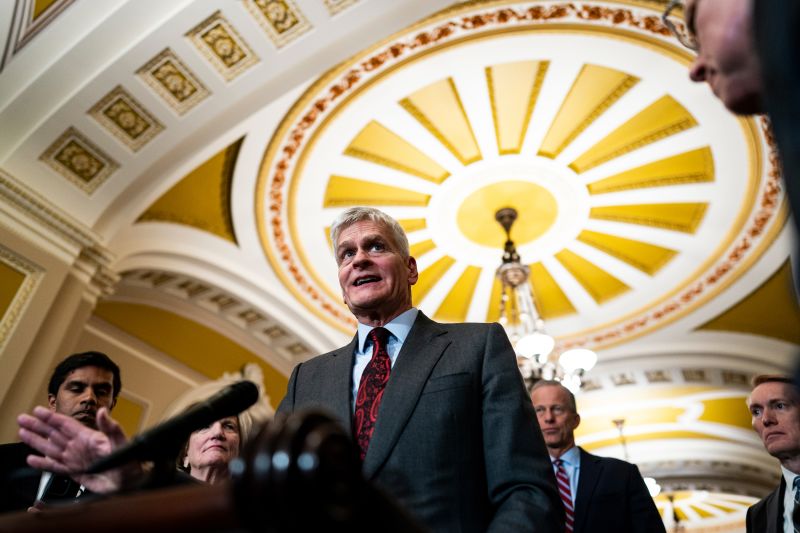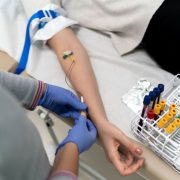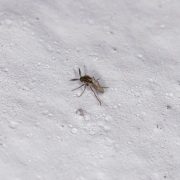Ahead of the first meeting of newly appointed vaccine advisers to the US Centers for Disease Control and Prevention, lawmakers are sharing fresh concerns about the panel’s membership and last-minute actions that could see Covid-19 and influenza vaccines thrown into question.
Her letter came hours after Sen. Bill Cassidy, the top Republican on the Senate Health, Education, Labor and Pensions Committee, called for officials to postpone the vaccine meeting amid concerns it could further erode Americans’ confidence in vaccine safety.
Kennedy appeared Tuesday morning before the House Energy and Commerce Health Subcommittee to testify on the administration’s proposed 2026 budget. The hearing began with committee Democrats also questioning his ACIP actions.
The dismissal of the ACIP members makes clear that Kennedy does not intend to uphold a commitment he made to senators during the confirmation process that he would not take away Americans’ access to vaccines, said Rep. Frank Pallone, a Democrat from New Jersey.
Pallone, the highest-ranking Democrat on the committee, called for Kennedy to appear before the panel again “very soon” for an oversight hearing on the “unprecedented and troubling chaos” created around the vaccine panel and vaccine access.
Kennedy defended firing the 17 vaccine committee members, saying they had conflicts of interest with the pharmaceutical industry. “That committee has been the template for medical malpractice,” he said. Conflicts for previous committee members are disclosed on the CDC’s website.
The committee traditionally advises the CDC on recommendations for who should get vaccines and when. The CDC’s directives shape doctors’ recommendations and insurers’ coverage of vaccinations.
When removing the recent members, Kennedy stated that the committee has been “plagued with persistent conflicts of interest” and failed to scrutinize safety concerns.
But the eight replacements, Warren wrote in her letter, are rife with conflicts of interest themselves — and new ACIP members’ conflict of interest disclosures have not been posted on the CDC’s site.
Warren’s letter mentioned new vaccine adviser Dr. Robert Malone, who has advocated against mRNA vaccines and Covid-19 measures. Warren stated in her letter that his Substack, promulgating those theories, “at one point was raking in around $31,200 in monthly revenue,” raising conflict of interest concerns.
Warren also highlighted new ACIP appointee Dr. Martin Kulldorff, a longtime friend of US National Institutes of Health Director Dr. Jay Bhattacharya’s — and his co-author on the Great Barrington Declaration, which argued for relaxed lockdown measures for young people.
She noted that both Malone and Kulldorff have served as paid witnesses against vaccine manufacturers in recent years, raising concerns about their own conflicts of interest.
The senator further flagged Dr. Vicky Pebsworth, an appointee on the board of the vaccine-critical National Vaccine Information Center, and Dr. James Pagano, someone “who does not appear to have any training in infectious disease or vaccinology.”
The senator wrote that Kennedy “hand-picked” these new members “to further [his] anti-vaccine agenda.”
Warren has raised questions before about Kennedy’s own conflicts of interest, including financial interest in vaccine litigation, saying they’re “not fully resolved.” Kennedy has that he’d divest his interest in the case, involving the HPV vaccine Gardasil, to an adult son — a step Democratic senators said was inadequate.
In her new letter, Warren requested a response from Kennedy by July 8.
Warren’s letter arrives as consternation rises about the panel’s meeting, scheduled for Wednesday and Thursday, which is scheduled to include discussions about Covid-19 vaccines and a resurrected debate about thimerosal in flu shots.
The preservative is used in multidose vials of the vaccine to prevent microbial growth but was removed from most shots decades ago because of concerns that it contains a form of mercury. Subsequent studies showed thimerosal wasn’t linked to neurodevelopmental issues, including autism.
Cassidy, chairman of the Senate’s health committee, also raised alarms on Monday night. The senator called for HHS to delay ACIP’s meeting, writing that some of the new appointees “lack experience studying new technologies such as mRNA vaccines, and may even have a preconceived bias against them.”
The panel’s meeting should be postponed until it is fully staffed, “with more robust and balanced representation – as required by law – including those with more direct relevant expertise,” he wrote.
During the House subcommittee hearing on Tuesday, Rep. Kim Schrier, a Democrat from Washington, asked Kennedy whether he “lied” to Cassidy about his commitments to vaccine safety. Cassidy said during a Senate floor speech on February 4 that among other assurances, Kennedy had committed to “maintain the Centers for Disease Control and Prevention’s Advisory Committee on Immunization Practices’ recommendations without changes.”
Cassidy’s prepared remarks, as posted on his website, said that the secretary would “maintain the Centers for Disease Control and Prevention’s Advisory Committee on Immunization Practices without changes.”
Kennedy said that he did not see that statement by Cassidy but that “I am compliant with all the agreements I gave to Senator Cassidy.”





